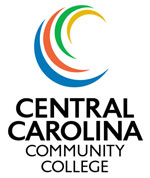
CCCC Leads State Focus on Biomanufacturing Workforce Development

Central Carolina Community College recently welcomed its first Biotechnology Pathway Navigator to give BioWork and biotechnology students a leg up when pursuing a career in biomanufacturing and the life sciences.
The newly created role provides career development resources and industry connections, while also ensuring students are on the right educational pathway to meet their career goals.
The position is just one way the college is using $1.3 million it received as a member of the Accelerate NC – Life Sciences Manufacturing Coalition and the NC BioBetter project.
“Together as a regional coalition, NC BioBetter will directly support students across the state to maximize our community colleges’ collective and positive impact on developing a right-skilled biotechnology workforce,” said Lisa Smelser, CCCC biotechnology director.
The NC BioBetter project’s purpose is to bolster the number of trained life sciences manufacturing workers by enrolling adults from across the state in BioWork and other life sciences training programs.
Creating partnerships to fill biomanufacturing jobs

Gregg Parr is the college’s first Biotechnology Pathway Navigator. In his role, he will work closely with the college’s BioWork and biotechnology students. In addition to teaching students how to create a LinkedIn profile, write a biotechnology-focused resume and nail a job interview, he will also connect students to open positions that require their education and job skills.
One of the keys to matching students to the right job, said Parr, is CCCC’s business and industry leadership team (BILT), which brings together the college and biotech industry leaders.
“Through this partnership, we ask companies what skills they needed,”’ explained Parr. “As a result, we are getting feedback directly from the companies that need workers.”
Building these partnerships is critical to ensuring students can transfer their studies and experience into a biomanufacturing or biotech position.
“We spend time tracking open positions and developing relationships with businesses to foster partnerships and to connect qualified students with job openings,” said Parr.
As a Gallup-Certified Strengths Coach, Parr is highly qualified to match students with jobs.

“I appreciate the qualities that make our students unique and focus on their talents,” said Parr. “I look at each person individually to make them more successful in their careers. This begins by getting to know them and understanding their backgrounds.”
Parr is also identifying tools, such as checklists, that can be easily adapted by students whose schedules often make it difficult for in-person meetings.
“I am always looking for career resources our students and I can use to best prepare them for the workforce,” said Parr. “To guide the development of these resources I have included some best practices used by career advisors at schools, including Yale and UNC Chapel Hill. How are they assisting their students from a career perspective?”
This research is incorporated in the career modules Parr teaches as part of the BioWork curriculum, which ensures students learn to create a biotechnology-focused resume, prepare for in-person and virtual interviews, and make the most of a job fair.
“This new approach will translate into more people from our training programs gaining industry employment because of the strength-based focus to building student confidence paired with the biopharma technical training students receive from CCCC,” said Smelser.
About the Build Back Better Regional Challenge Award
The North Carolina Biotechnology Center led a coalition of public and private organizations and institutions to secure an award of nearly $25 million from the U.S. Economic Development Administration’s Build Back Better Regional Challenge.
This award, which is the second phase of the challenge, will further strengthen North Carolina’s life sciences manufacturing cluster by expanding, connecting and promoting training and career opportunities to underserved and distressed communities, including historically excluded communities.
Community colleges involved in the NC BioBetter project include Alamance Community College, Caldwell Community College and Technical Institute, Central Carolina Community College, Durham Tech Community College, Forsyth Technical Community College, Johnston Community College, Pitt Community College, Vance-Granville Community College, Wake Technical Community College, and Wilson Community College.
